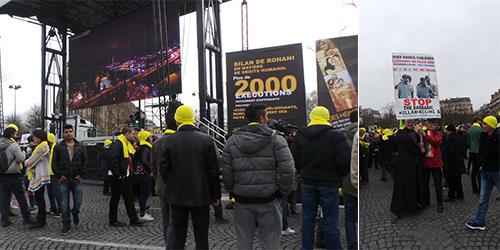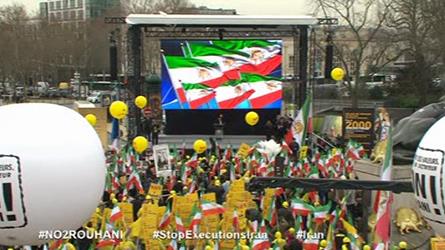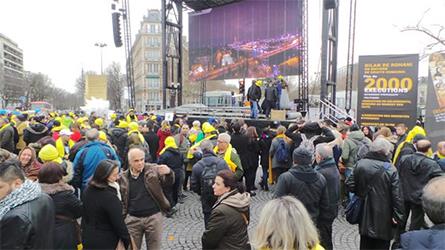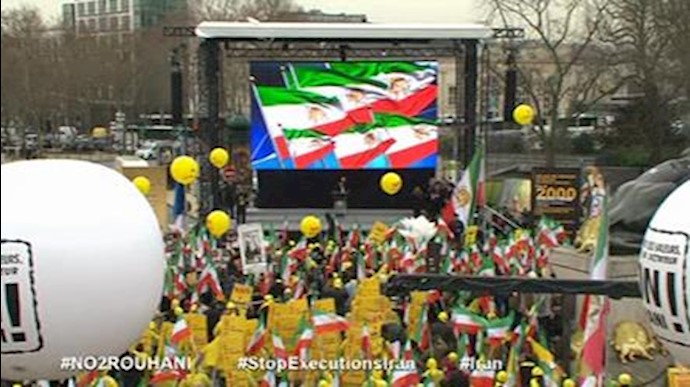The West should be wary of deepening ties with a regime that has stepped up arrests and judicial abuse.
By Giulio Maria Terzi
Politico – Jan. 27, 2016 – The nuclear agreement between the Islamic Republic of Iran and the P5+1 (China, France, Germany, Russia, the U.K. and the U.S.) was a significant development. But there are a number of reasons why it should be considered with more caution than excitement. Is it really a landmark achievement for world peace and security?
Many friends of the Iranian people would like to see the country make steps toward freedom, human rights, pluralism and tolerance. Unfortunately the odds are that the Joint Comprehensive Plan of Action will neither make the Middle East safer nor fundamentally change the nature of the Iranian regime and its conduct in the region.
Since signing the agreement in mid-July Tehran has shown a clear lack of interest in changing course. This fact is particularly significant in light of President Hassan Rouhani’s visits to Italy and France this week, the first such state visits in a decade.
By all accounts, Supreme Leader Ayatollah Ali Khamenei only agreed to the nuclear talks because the Iranian economy was suffering under crippling U.S. and EU sanctions, raising the specter of massive uprisings reminiscent of those in 2009. Khamenei took great care to emphasize, even at the beginning of the Joint Comprehensive Plan of Action’s implementation phase, that dialogue and cooperation with the West should not expand to other areas, namely regional security and human rights.
The regime has carried out 52 hangings since the beginning of the year, intensifying a pervasive climate of terror and fear. In the almost three years of Rouhani’s tenure, more than 2,000 people have been executed, according to a report by Hands Off Cain (an anti-death penalty and torture group), some for political charges like supporting the opposition People’s Mojahedin Organization of Iran (PMOI or MEK).
Iran has long led the world in per capita executions, but this is a sharp increase compared to the same period during the presidency of Mahmoud Ahmadinejad. The regime has also stepped up its arrests and its judicial abuses against activists, dissidents, minorities and others.
Beyond its borders, Tehran has been pouring billions of dollars into support for Syrian President Bashar al-Assad and has dispatched more than 5,000 Revolutionary Guards (IRGC) and some 25,000 non-Iranian mercenaries to Syria. The international community has made efforts to bring Iran into the discussion over a political solution to the Syrian civil war and Tehran’s refusal to negotiate over the future of the Assad regime makes it clear that Iranian officials are abiding by Khamenei’s directive to avoid negotiation.
There have been other provocations. In December, the U.N. Security Council’s Panel of Experts on Iran confirmed that a ballistic missile test carried out in October violated paragraph nine of Security Council Resolution 1929. Tehran has stated that it has no intention of abiding by such resolutions and Rouhani himself ordered Defense Minister Hossein Dehqan to further expand the country’s ballistic stockpiles.
Rouhani’s visit should be a test of his willingness to change Iran’s egregious conduct and an opportunity to hold him accountable for his actions.
Furthermore, the IRGC fired unguided rockets into the sea within 1,500 yards of U.S. and French warships and commercial traffic on December 26, 2015. Two weeks later, the IRGC captured 10 U.S. sailors who had strayed into Iranian territorial waters.
Iran has been even more belligerent toward our allies in the Middle East. Deepening discord between Iran and Saudi Arabia reached a breaking point early January when Iranian militias ransacked the Saudi embassy in Tehran and the Saudi consulate in Mashhad. Saudi Arabia responded by severing diplomatic ties with Iran. Other Gulf States followed suit, citing deep-seated concerns about Iran’s escalating, destructive meddling in Syria, Yemen, and elsewhere.











